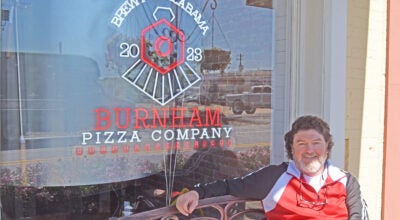No same-sex couples show
Published 4:32 pm Tuesday, January 27, 2015
There were no same-sex couples waiting to be married at the Escambia County Courthouse Monday, Probate Judge Doug Agerton said.
Federal judge in Mobile on Friday struck down Alabama’s constitutional ban on same-sex marriage.
U.S. District Callie V.S. “Ginny” Granade ruled Friday in favor of two Mobile women who sued to challenge Alabama’s refusal to recognize their marriage performed in California.
On Sunday, she issued a 14-day stay on her ruling. That stay will end Feb. 9.
Plaintiffs Cari Searcy and Kimberly McKeand of Mobile said that they had been a couple for more than a decade and had a child, now 8, with the help of a sperm donor. However, an Alabama court refused to let Searcy be recognized as the child’s adoptive parent because state law did not recognize the couple as spouses.
Granade said a state statute and 2006 amendment to the Alabama Constitution were both in violation of the equal protection clause of the U.S. Constitution
Alabama Probate offices up until now have refused to issue same-sex couples marriage licenses because it was illegal under the Alabama Marriage Protection Act. But the late Friday ruling by Grande ruled it was unconstitutional.
The Alabama Probate Judges Association on Sunday filed a motion in the federal court case asking to join in with the Alabama Attorney General’s Office request for the federal judge to stay enforcement of her ruling while the case is on appeal and until the U.S. Supreme Court rules on same-sex marriage.
Agerton said he would follow the probate judges association advice issued Sunday not to issue marriage licenses to same-sex couples. Attorneys for the plaintiffs in the Mobile lawsuit, two women, likened the association’s stance to that of former Alabama Gov. George Wallace’s stand in the schoolhouse door to try and prevent integration of the University of Alabama in 1963.
Granade put same-sex nuptials on hold to allow the attorney general to appeal the decision she issued Friday. But citing many similar failed appeals by other states to the Supreme Court over bans, she said Alabama’s would likely fail, too.
“As long as a stay is in place, same-sex couples and their families remain in a state of limbo with respect to adoption, child care and custody, medical decisions, employment and health benefits, future tax implications, inheritance and many other rights associated with marriage. The court concludes that these circumstances constitute irreparable harm,” she wrote. “In its discretion, however, the court recognizes the value of allowing the Eleventh Circuit [Court of Appeals] an opportunity to determine whether a stay is appropriate.”
Not including Alabama, 36 states, plus the District of Columbia, allow gay men and lesbians to wed. The Supreme Court said in mid-January that it would hear a challenge from four states to same-sex marriage bans, with many experts predicting that the nation’s highest court will finally settle the gay marriage question nationwide.





